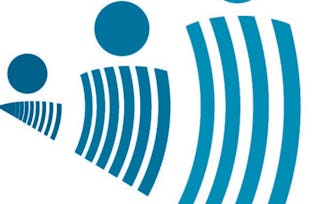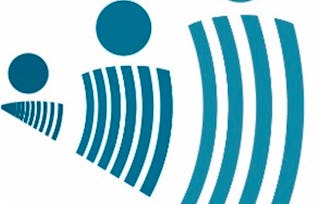Welcome to the Program Design and Evaluation course! By the end of this course, you will gain an in-depth understanding of the conceptual and methodological steps in designing and evaluating a program or a project to operationalize a public policy initiative. You will learn how a program aims to allocate resources to its intended beneficiaries by engaging multiple stakeholders. You will analyze its necessity when a market, generally seen as the most efficient mechanism to allocate resources, fails to do the needful in the desired measure. You will further explore that the beneficiary of a program or a project may be an individual, a firm, or even a collective community, an organization, and different layers of a state. You will analyze that while a program or a project involves collective public action, it is necessary to ensure that such action delivers the desired outcomes. The course focuses on how program design entails identifying the required collective actions relevant for translating a public policy initiative into desired social outcomes, even if such actions may succeed or fail to deliver the desired outcomes. You will gain insights into how program design, implementation, and evaluation feedback help make a program or a project successful in meeting its stated objectives.
即将结束: 只需 199 美元(原价 399 美元)即可通过 Coursera Plus 学习新技能。立即节省

您将学到什么
Identify the role of a program or project in operationalizing a public policy decision.
Describe the steps in designing a program or project and how these may have to be tailored to meet context-specific requirements.
Identify and implement the steps involved in evaluating a program/project.
您将获得的技能
要了解的详细信息

添加到您的领英档案
September 2025
27 项作业
了解顶级公司的员工如何掌握热门技能

该课程共有7个模块
In this module, you will learn how public policy, when conceptualized, must be operationalized through a project or program. You will know how operationalization involves designing a program or project and solving the problem of coordination failure. You will learn about the coordination framework to engage various stakeholders, often with conflicting interests regarding the problem and its solution. You will analyze collective action to reduce the conflict zone in the process.
涵盖的内容
9个视频6篇阅读材料4个作业
In this module, you will learn about two fundamental processes of a program or project. First, you will gain an understanding of the control types that vary across resources and lead to project design that can take care of the property rights of resources that cannot be better managed using private property regimes. Second, you will learn about the requirement to think and apply various ways of assigning property rights. You will explore how a properly designed project takes care of these two fundamental processes.
涵盖的内容
7个视频4篇阅读材料4个作业
In this module, you will learn how a program theory relates to two components of a program. You will know that the first component develops the change theory, the normative part, and how it identifies the main features to be changed through the program to achieve the planned changes. Further, you will learn about the second component that involves the action theory, the operational part, to bring about changes to be pursued. The module focuses on these two components and provides the fundamental, conceptual, and operational basis for giving a program its intended outcomes.
涵盖的内容
7个视频5篇阅读材料5个作业
In this module, you will learn about the specific steps in a program design and how to implement a designed program. You will learn about the specific phases of designing a program, integrating the two components of the program theory. You will also examine how the different components of program design mechanics are integrated into a complete holistic program framework.
涵盖的内容
7个视频3篇阅读材料3个作业
This module focuses on the logical framework. You will learn how it evolved during the evaluation exercises over the last five decades. You will explore how it is considered a logical structure that links project design, implementation, and evaluation in a single but linear perspective to facilitate the program to achieve its desired goals.
涵盖的内容
7个视频3篇阅读材料4个作业
This module focuses on the evaluation of a program that is generally concerned about its merit or worth. From an analytical perspective, you will learn that they need not always fetch the same results. You will analyze that while merit investigates the intrinsic value created by the program for the intended beneficiaries, worth looks at the extrinsic value of the program offered to those who are paying for the intervention. Hence, the two approaches may not always yield the same results. The module also discusses the fundamental difference between research and evaluation regarding their intended goals.
涵盖的内容
7个视频4篇阅读材料4个作业
Programs were made a concrete component of international development cooperation measures. The International Development Practitioners were keen to know the development effectiveness of the programs implemented by different agencies. So, the operational perspectives of the evaluation processes were mainly developed by those engaged with the Development Advisory Council of the Organization for Economic Cooperation and Development (OECD). They came out with five specific evaluation criteria in 1992, which were recently modified in 2020, and added one more criterion, with some of the existing ones being modified.
涵盖的内容
7个视频3篇阅读材料3个作业
攻读学位
课程 是 O.P. Jindal Global University提供的以下学位课程的一部分。如果您被录取并注册,您已完成的课程可计入您的学位学习,您的学习进度也可随之转移。
位教师

从 Governance and Society 浏览更多内容
 状态:免费试用
状态:免费试用Johns Hopkins University
 状态:免费试用
状态:免费试用Johns Hopkins University
 状态:免费试用
状态:免费试用Johns Hopkins University
人们为什么选择 Coursera 来帮助自己实现职业发展




常见问题
To access the course materials, assignments and to earn a Certificate, you will need to purchase the Certificate experience when you enroll in a course. You can try a Free Trial instead, or apply for Financial Aid. The course may offer 'Full Course, No Certificate' instead. This option lets you see all course materials, submit required assessments, and get a final grade. This also means that you will not be able to purchase a Certificate experience.
When you purchase a Certificate you get access to all course materials, including graded assignments. Upon completing the course, your electronic Certificate will be added to your Accomplishments page - from there, you can print your Certificate or add it to your LinkedIn profile.
Yes. In select learning programs, you can apply for financial aid or a scholarship if you can’t afford the enrollment fee. If fin aid or scholarship is available for your learning program selection, you’ll find a link to apply on the description page.
更多问题
提供助学金,







